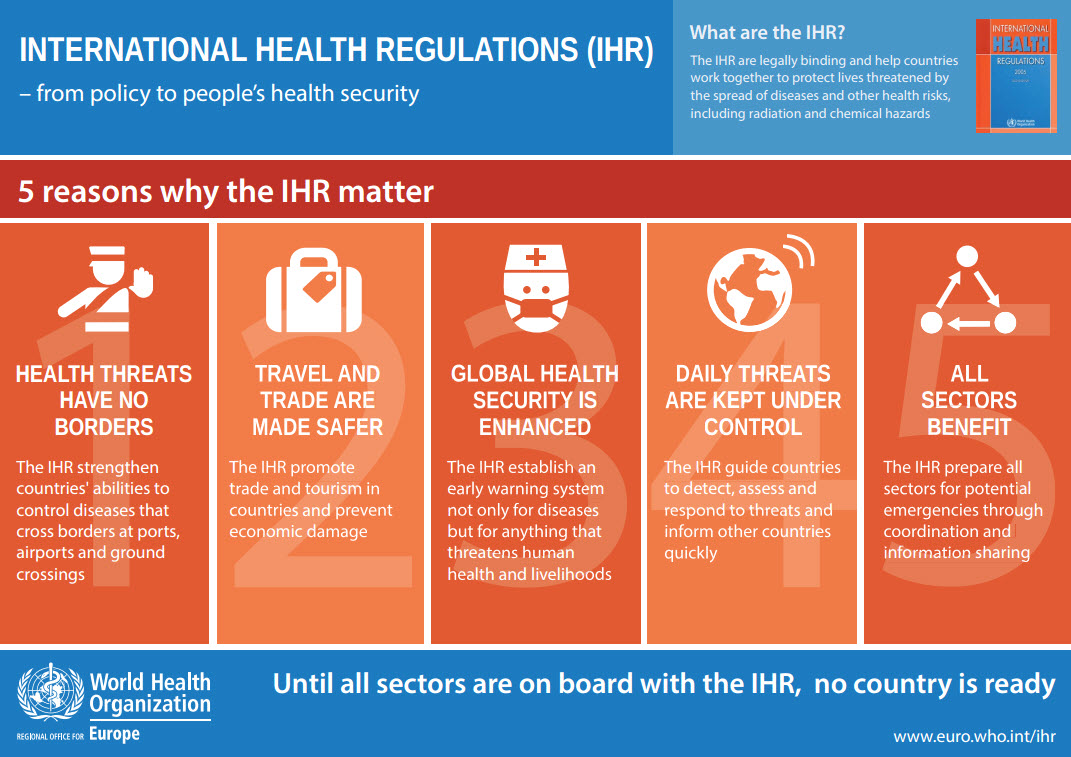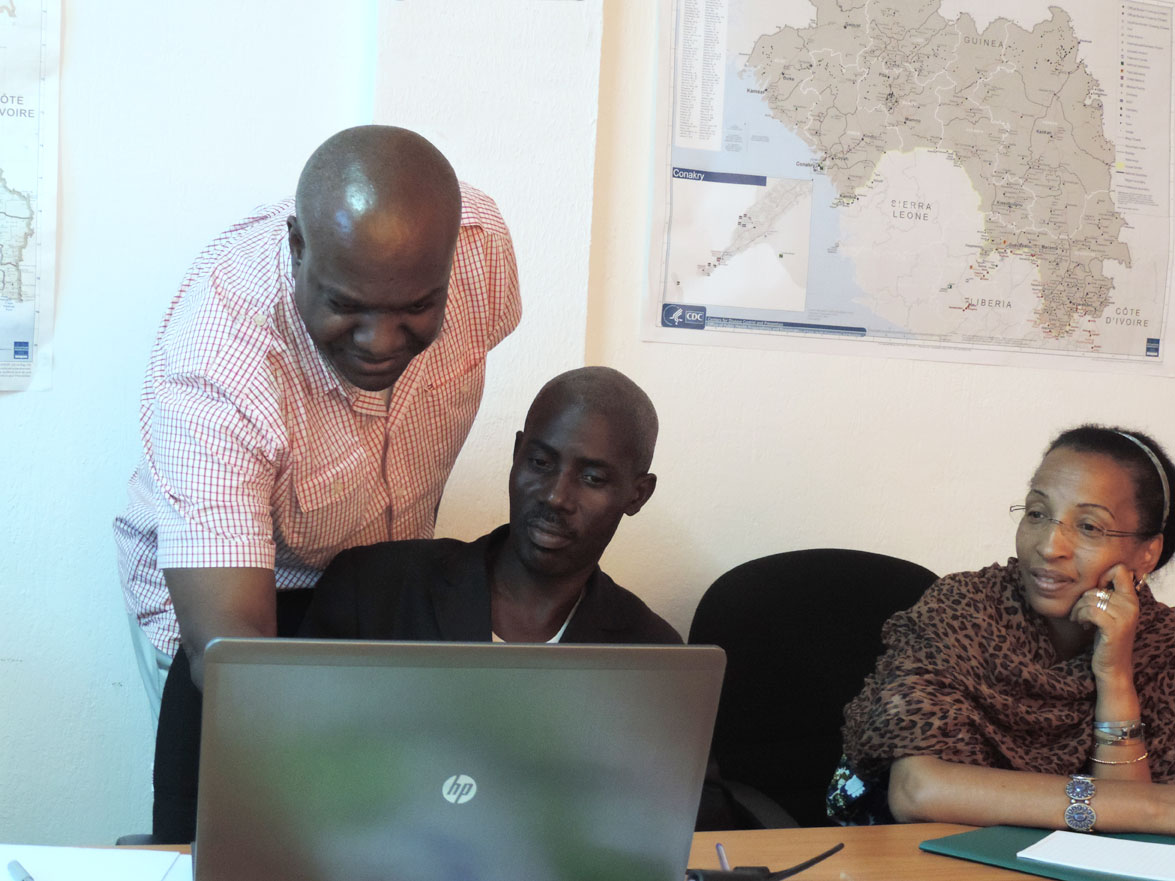10 Years of International Health Regulations: Why They Matter
This web page is archived for historical purposes and is no longer being updated.
Ten years ago, in 2005, the countries of the world came together to put a new framework into place that would better prepare the world for public health emergencies. Nearly 70% of the world’s countries are unprepared to effectively detect, assess, report and respond to potential public health threats. We share a responsibility to protect ourselves – and one another – from outbreaks of infectious diseases and other health threats.
Known as the International Health Regulations (2005) (IHR), the new framework represents an agreement between 196 countries, including all World Health Organization (WHO) Member States, to work together to prevent and control global health threats while protecting international travel and trade.[1]
The IHR matter to the world’s health because:

1. Health threats have no borders
As early as the 14th Century, people used quarantine to keep diseases like the plague from spreading across borders.[2] We have known for a very long time that what affects one country can affect other parts of the world. This is especially true today, when we are so closely connected to everyone else.
The health of our world today is threatened by:
- Spread of new diseases, such as MERS-CoV and influenza H7N9
- Travel and trade between countries
- Rising antibiotic resistance
- The potential for accidental or deliberate release of dangerous pathogens
2. Travel and trade are made safer

Emergency Operations Centers (EOCs) help meet the goals of the IHR through establishing routine reporting systems and facilitating responses. Above, workers at the EOC in Guinea coordinate efforts to fight Ebola.
In 2003, Severe Acute Respiratory Syndrome (SARS) threatened global health, showing us how easily new outbreaks could spread. More recently, the Ebola epidemic has shown us that we are only as safe as the most fragile state. Better detection, assessment, reporting, and response to public health threats can keep health threats from crossing borders. The IHR include specific measures countries can take at ports, airports and ground crossings to limit the spread of health risks to neighboring countries, and to prevent unwarranted travel and trade restrictions.[3]
3. Global health security is enhanced
The IHR play an important role in building and maintaining global health security. Today, CDC, along with other partners and countries around the world, is helping to actualize the goals of the IHR through the Global Health Security Agenda. The GHS Agenda recognizes the challenges countries are facing, laying out practical and concrete steps we can take in our own country, as well as ways in which countries can support each other in meeting IHR goals.
4. Daily threats are kept under control
While previous regulations required countries only to report incidents of cholera, plague, and yellow fever, the IHR require countries to consider the possible impact of all events that might potentially become a public health emergency of international concern (PHEIC), including not only disease but also chemical and radiological hazards.
Since the revised IHR were put into place, four PHEICs have been declared by WHO:
While it is important for the world to recognize and respond to PHEICs when they occur, the goal of the IHR is to stop events in their tracks before they become emergencies.
5. All sectors benefit
We can keep everyone safer by working together, and by coordinating and sharing information between sectors. Under the IHR, countries will coordinate with WHO to address potential health threats and prevent outbreaks.
As part of their commitment to the IHR, participating countries agreed to comply with these rules by 2012. However:
- By 2012, fewer than 20% of countries had met IHR goals
- By 2014, only about 1/3 of participating countries (64 countries) reported fully achieving the core capacities[4]
We have a long way to go in achieving the goals of the IHR. Too many of us remain vulnerable, and there is still a lot to be done. That is why CDC is working with partners in countries to build the ability to protect health across the globe. Learn more about the work CDC is doing every day to prevent and respond to public health emergencies and make the world a safer, healthier place.
For more information about the IHR:
[1] WHO. Strengthening health security by implementing the International Health Regulations (2005). Page accessed 6/19/15
[2] Heymann, David L et al., Global health security: the wider lessons from the west African Ebola virus disease epidemic; The Lancet , Vol. 385 , Issue 9980 , 1884 – 1901
[3] WHO. Strengthening health security by implementing the International Health Regulations (2005). Page accessed 6/19/15
[4] Katz R, Dowell S. Time for an International Health Regulations Review Conference. Lancet Global Health 2015. Published Online May 8, 2015. July 2015. Vol 3(7), e352-353